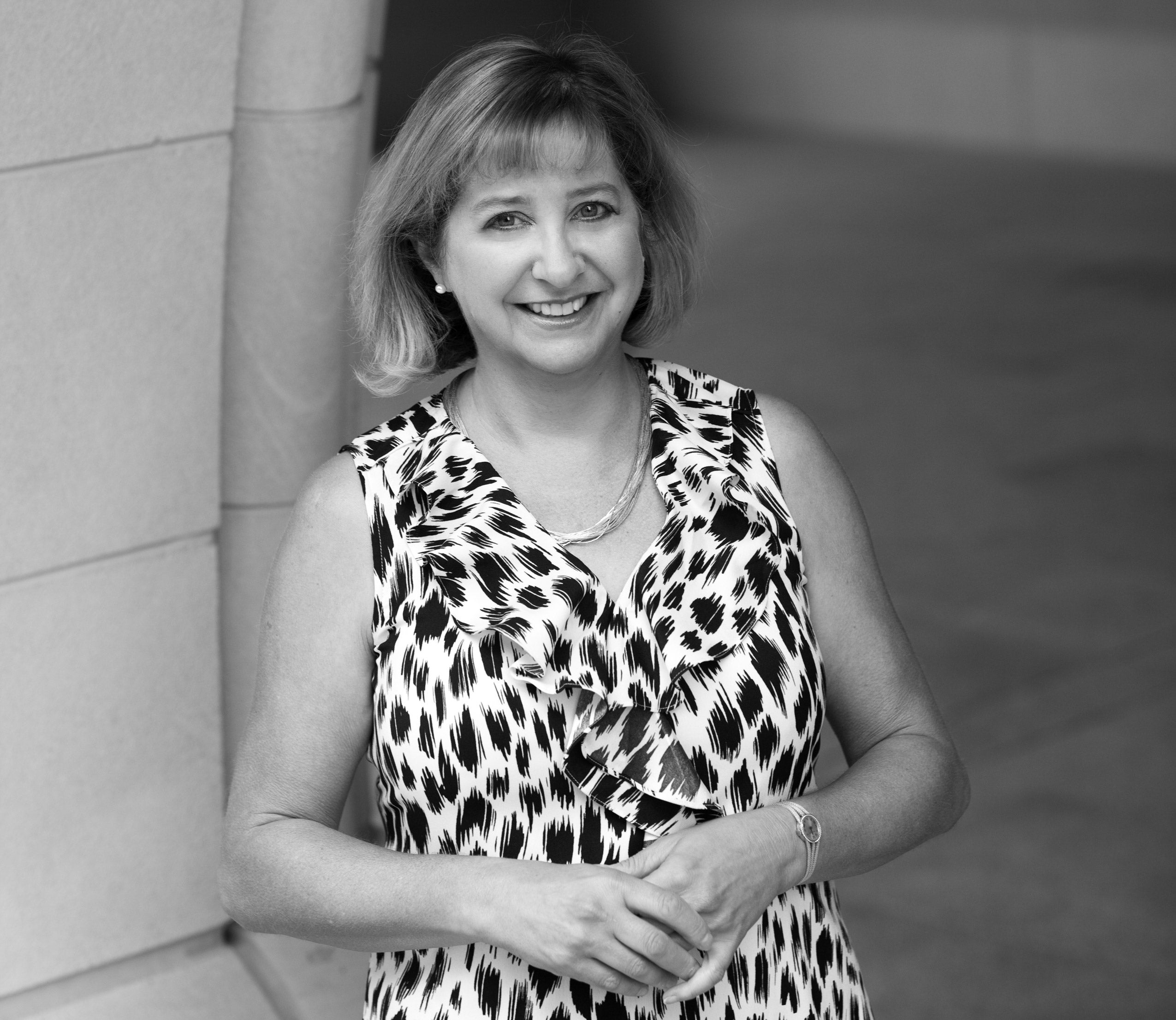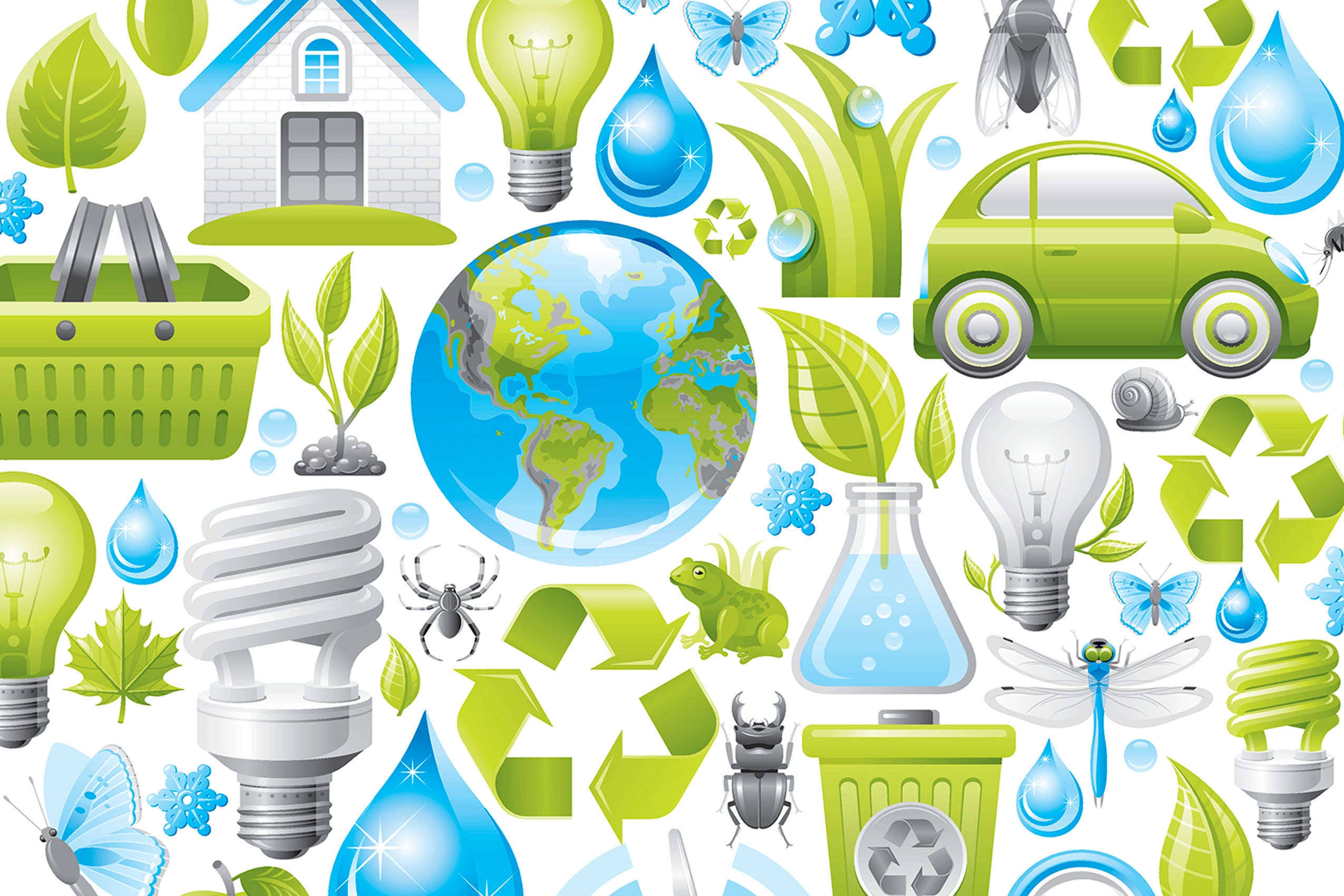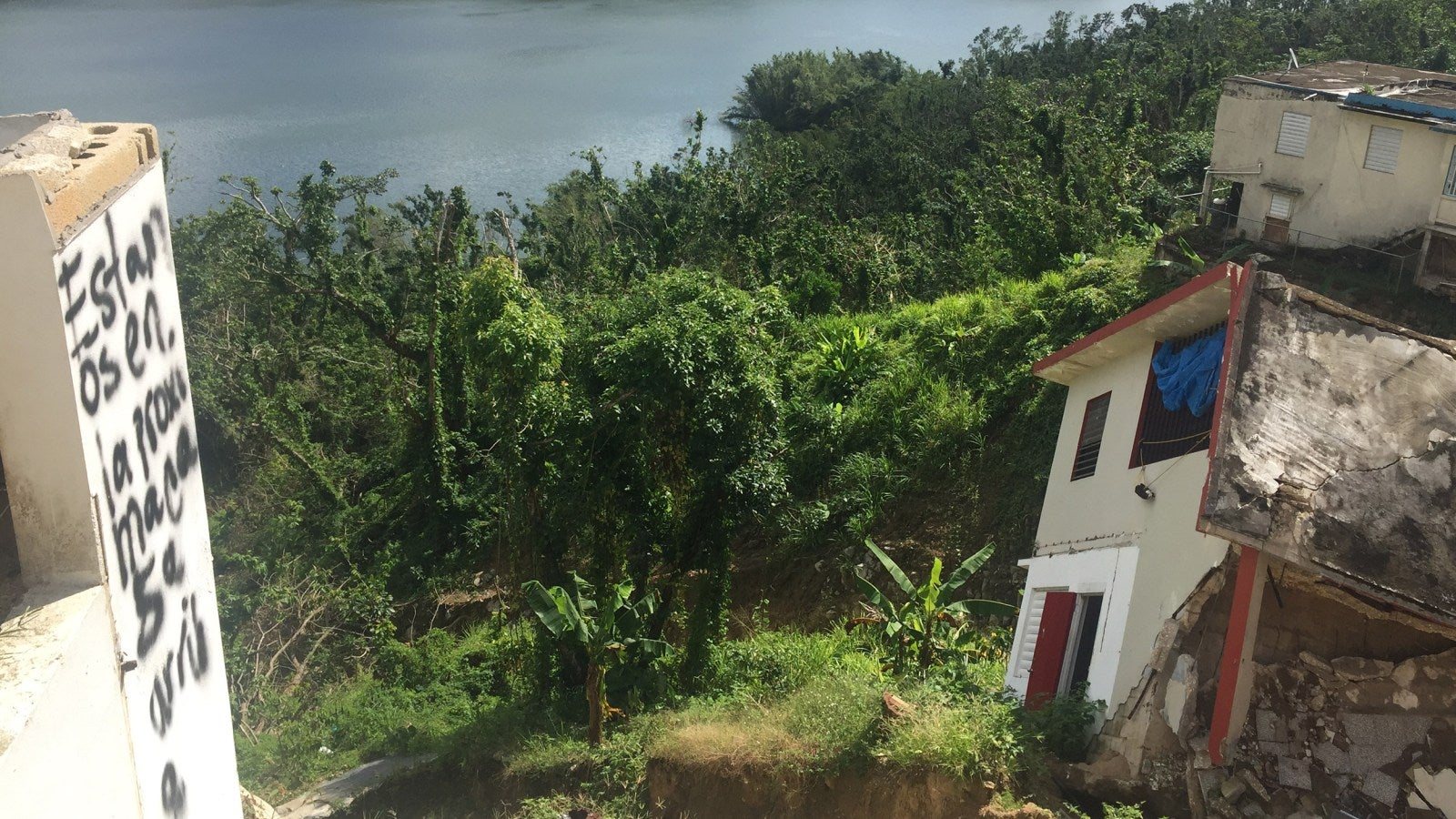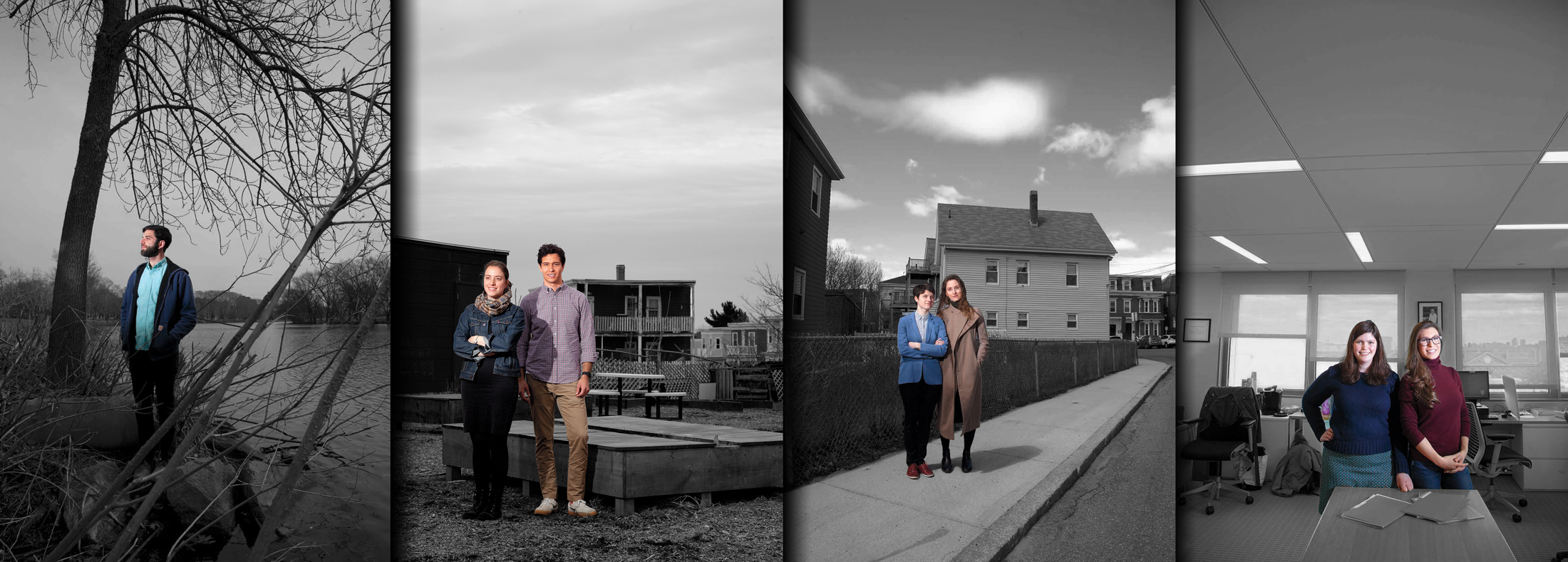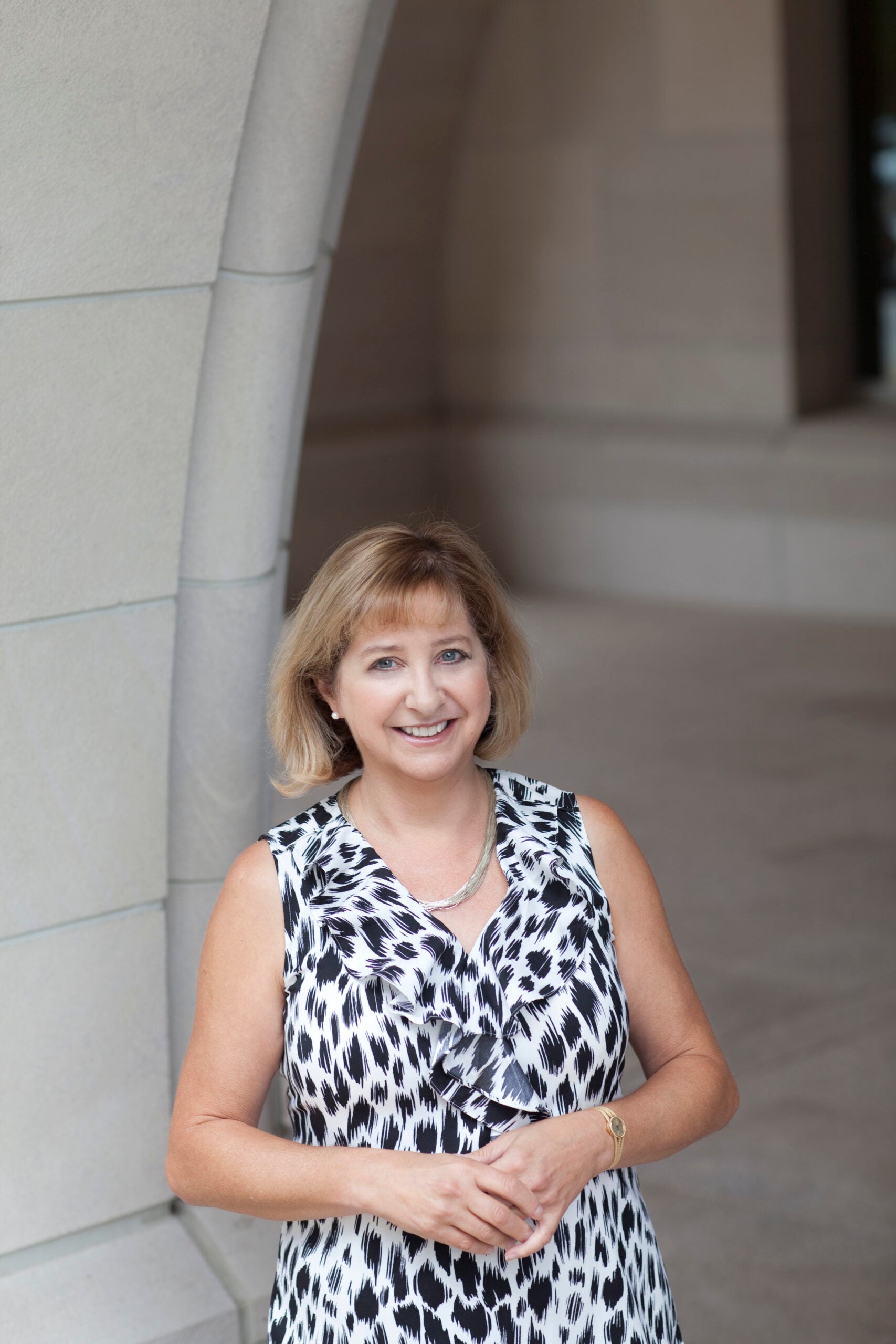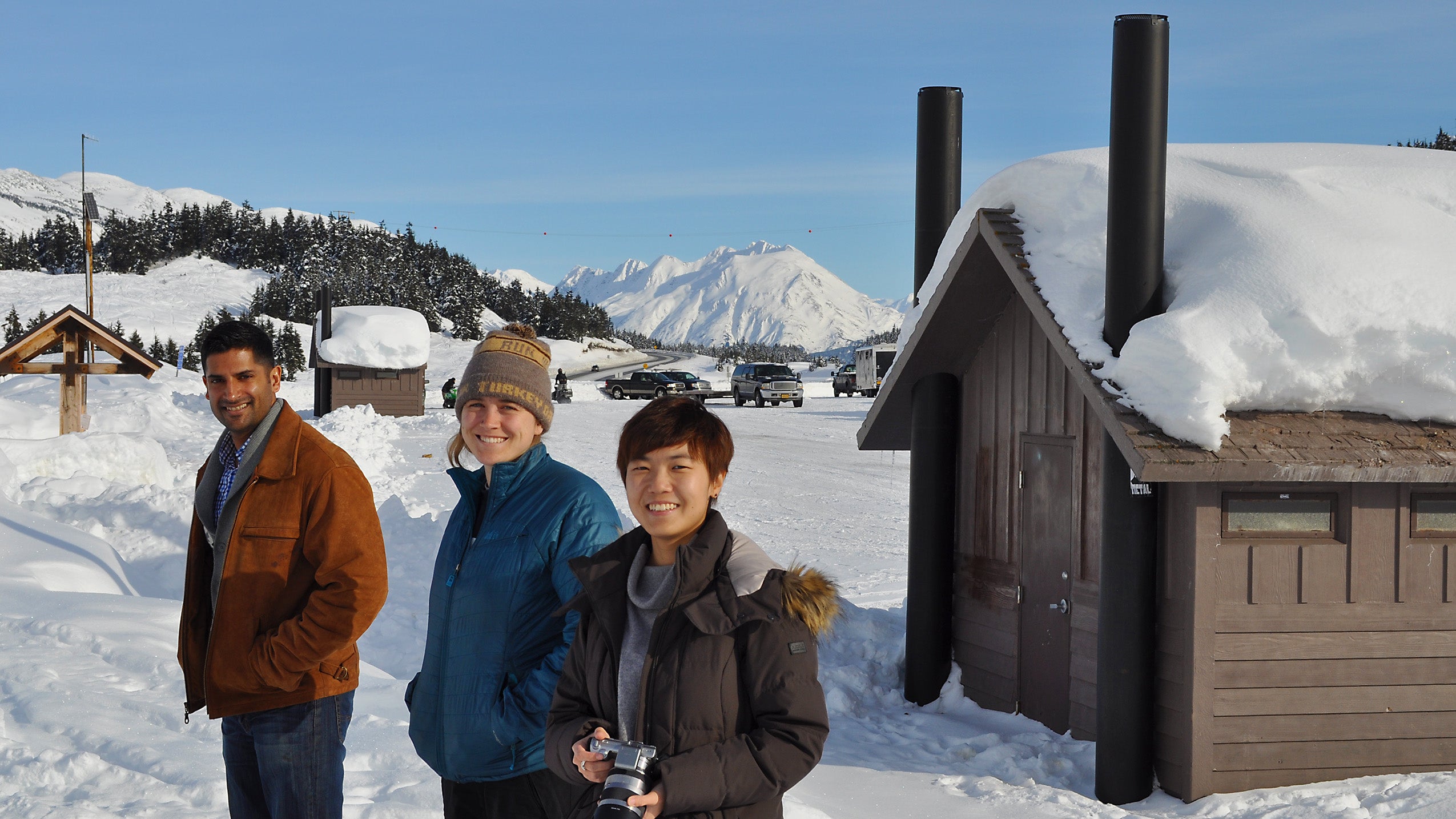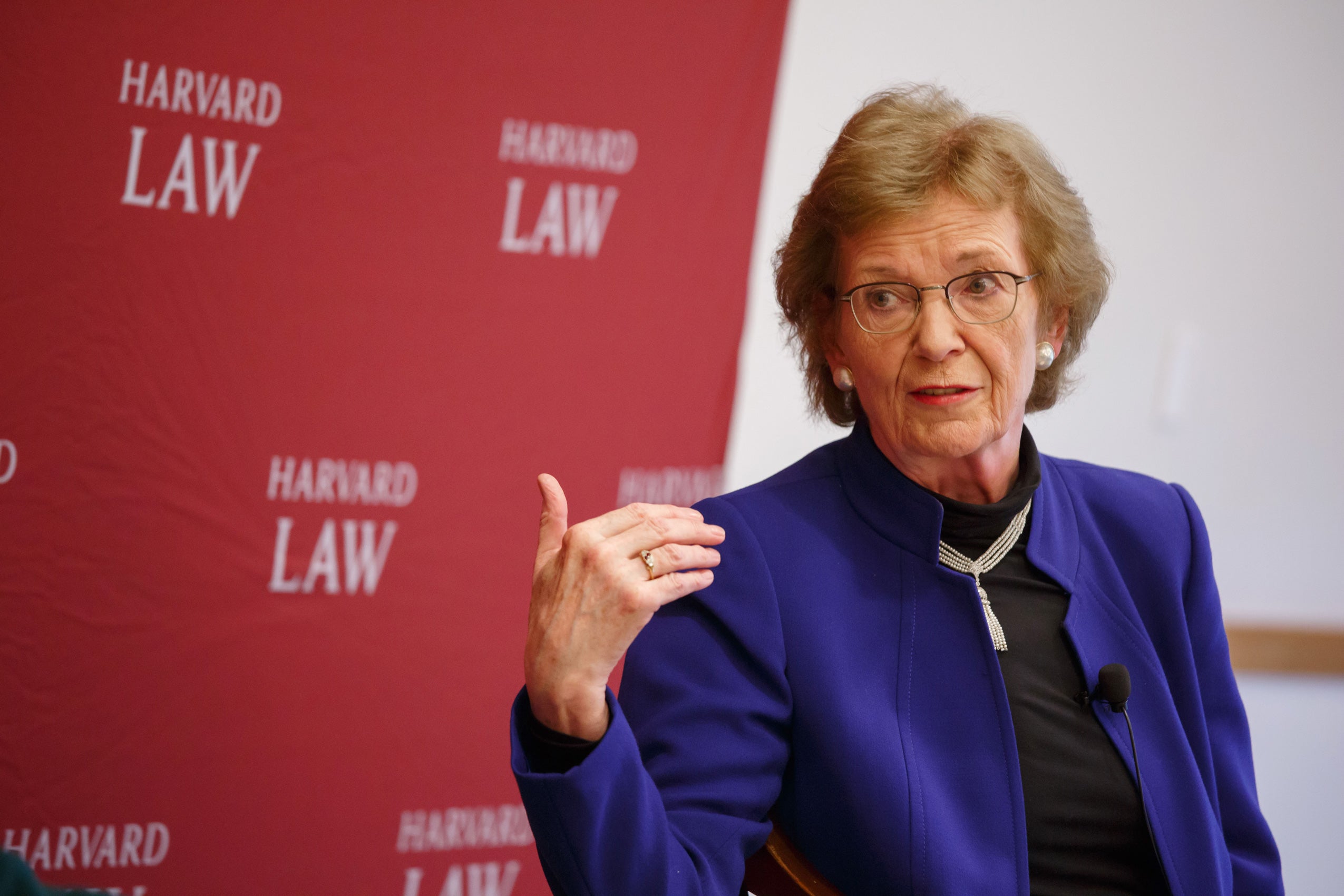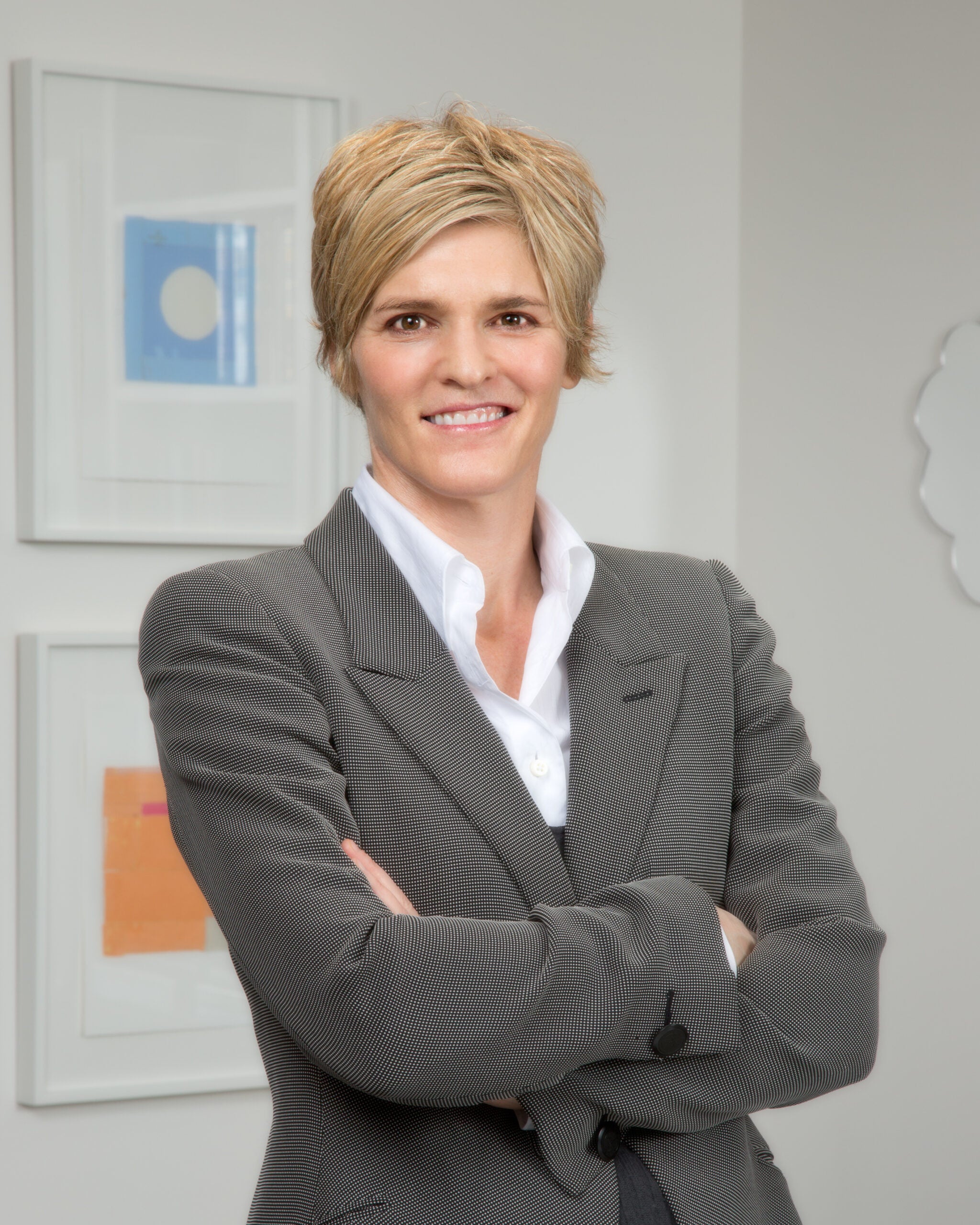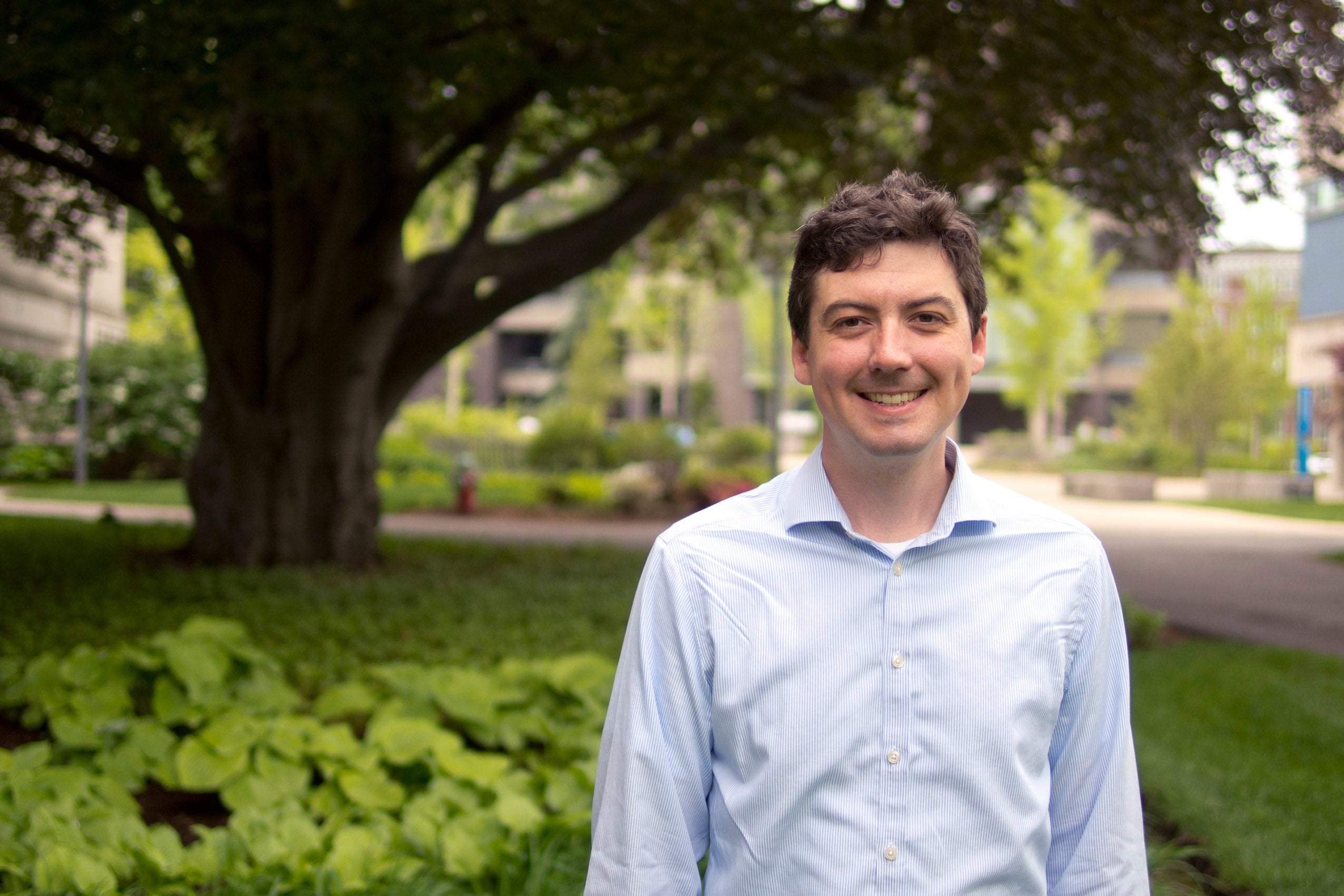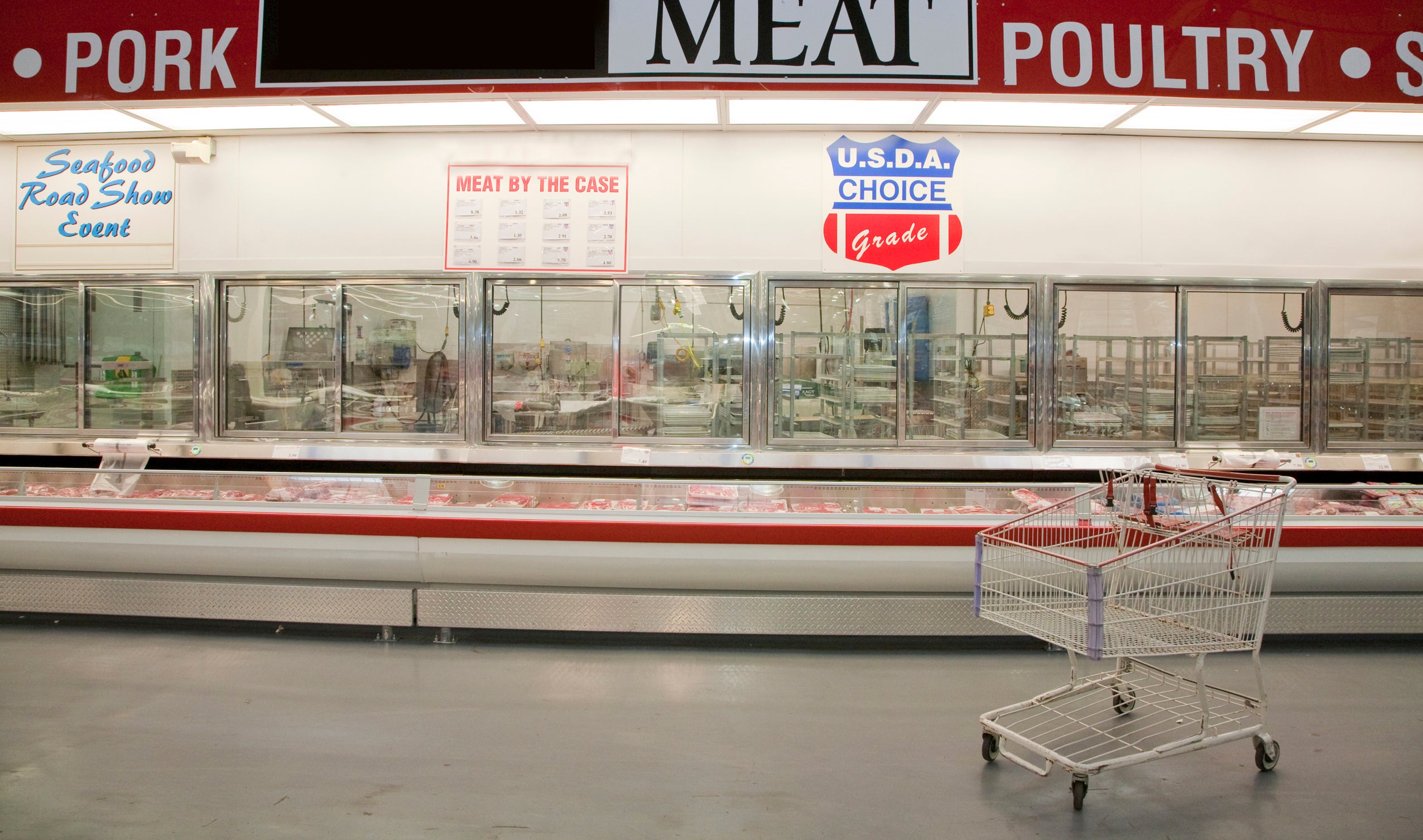People
Wendy Jacobs
-
Puerto Rico benefits from Harvard’s living lab
December 14, 2018
A plan designed by a team of Harvard University students to create a reliable source of renewable, affordable electricity for a Puerto Rican community hammered in 2017 by Hurricane Maria has moved a step closer to reality. The students are enrolled in Professor Wendy Jacobs' Harvard’s “Climate Solutions Living Lab” course.
-
Wendy Jacobs, Harvard officials call on EPA to withdraw proposed ‘transparency’ rule
August 15, 2018
A letter drafted by HLS's Emmett Environmental Law and Policy Clinic Director Wendy Jacobs, and signed by nearly 100 hospital leaders and Harvard faculty, calls on the Environmental Protection Agency to withdraw its proposed rule on scientific “transparency,” saying that the change would drastically limit the scientific and medical knowledge that underlie a host of EPA regulations that protect human health.
-
Letter opposes possible EPA shift
August 13, 2018
Nearly 100 leaders and faculty members at Harvard and its affiliated hospitals have signed a letter calling on the Environmental Protection Agency (EPA) to withdraw its proposed rule on scientific “transparency,” saying that the change would drastically limit the scientific and medical knowledge that underlies a host of EPA regulations that protect human health...The letter was drafted by Wendy Jacobs, Emmett Clinical Professor of Environmental Law and director of Harvard Law School’s Emmett Environmental Law and Policy Clinic, together with clinic staff and with input from faculty members about the rule’s potential scientific and health ramifications. It was submitted to the EPA on Tuesday during the public comment period on the proposed rule, which is called “Strengthening Transparency in Regulatory Science.”
-
Students help groups to pursue climate action
November 20, 2017
Led by Professor Wendy Jacobs, director of the Emmett Environmental Law and Policy Clinic at Harvard Law School, the Climate Solutions Living Lab course launched last spring to help push forward the transition to a carbon-free future that supports planetary and human health.
-
Students help groups to pursue climate action
November 15, 2017
...Led by Wendy Jacobs, the Emmett Clinical Professor of Environmental Law and director of the Emmett Environmental Law and Policy Clinic at Harvard Law School, and developed in collaboration with the Harvard Office for Sustainability, the three-year research and teaching project was funded by the University as part of its living lab initiative to use the campus as a test bed for innovative sustainability solutions that can then be replicated across much broader levels. “No single professional discipline can tackle climate change in isolation; collaboration is critical,” said Jacobs...“The science behind a nitrogen fertilizer emissions-reduction strategy is already solid, but the challenge was developing an economical and practical implementation plan that could transform the concept into a feasible project,” said Harvard Law School student Chaz Kelsh [`18].
-
A fresh look at Israeli/Palestinian freshwater issues
December 20, 2016
An op-ed by Wendy Jacobs, Robert Bordone, and Hrafnhildur Bragadottir. Economic growth and success depend on innovative and resourceful management of natural resources. In Israel and Palestine, among the world’s most arid regions, where high population growth strains natural resources, finding ways to cooperate around water quality and quantity issues is imperative. Cooperation is essential for public health and safety from untreated sewage and agricultural runoff and to meet everyone’s increasing needs for safe water. Water quality and quantity depends on cooperation precisely because water flows without regard to political boundaries.
-
Another ‘Angry Granny’ on Climate Justice
November 18, 2016
In a recent conversation at HLS with Dean Martha Minow, Mary Robinson, former president of Ireland and U.N. special envoy on El Niño and climate change, told the story of how she came to be an “Angry Granny” on the topic of climate change, starting with her discussions with people in the most deeply affected communities.
-
Leaders of Harvard’s renewed “Living Laboratory” initiative, designed to engage students and faculty in sustainability efforts, say the program reflects growing interest in environmental action on campus. The core idea of the Living Laboratory initiative, which will be housed in the Office for Sustainability, is to use the Harvard campus as a test bed for new ideas related to combating climate change and improving public health. The Climate Solutions Living Lab Course and Research Project, led by Law School clinical professor Wendy B. Jacobs, will launch in spring 2017. The interdisciplinary course will discuss various approaches to reducing greenhouse emissions at Harvard and beyond. “The object of the course is for the students to do some real life problem solving about climate change,” Jacobs said. Jacobs also talked about the importance of collaboration and a multidisciplinary approach in the course. “The class is specifically designed to bring together faculty and students across campus,” she said.
-
Wendy Jacobs ’81, clinical professor and director of Harvard Law School’s Emmett Environmental Law and Policy Clinic, will lead the Living Lab Course and Research Project, which is designed to bring together students from across the University in interdisciplinary teams to develop innovative approaches for reducing greenhouse gas emissions at Harvard and beyond.
-
Healthy buildings and clean air keep people healthy. That simple premise is driving a series of studies being conducted by Harvard researchers, some of which have gathered insights from University dorms and office buildings...This partnership and another involving faculty and students working to reduce greenhouse gas emissions are being hailed as models for the type of collaborative work that the University wants to stimulate as it launches a reinvigorated “campus as a living laboratory” initiative...Wendy Jacobs, clinical professor and director of Harvard Law School’s Emmett Environmental Law and Policy Clinic, will lead the Living Lab Course and Research Project, which is designed to bring together students from across the University in interdisciplinary teams to develop innovative approaches for reducing greenhouse gas emissions at Harvard and beyond...“I am really excited about this course — its purpose is to unleash the incredible creative energy of students and faculty from across the University to identify innovative and practical ways for Harvard to reduce its own climate impact,” said Jacobs. “We will focus our attention on solutions that have demonstrable environmental and public health benefits and, ideally, also include an educational component that extends beyond the course itself.”
-
Hunting polluting gases around Boston
April 18, 2016
Harvard students, faculty and fellows are training new high-tech instruments on Boston’s skies, searching for one well-known troublemaker and one escapee among the atmosphere’s invisible gases.
-
Hunting polluting gases around Boston
April 7, 2016
Harvard students, faculty, and fellows are training new high-tech instruments on Boston’s skies, searching for one well-known troublemaker and one escapee among the atmosphere’s invisible gases. The old troublemaker is carbon dioxide, the greenhouse gas released by burning fossil fuels that long has been known as the main cause of climate change. The escapee is methane, an even more powerful emission that is the main component of the natural gas burned in home furnaces and in the electricity-generating power plants that are shouldering aside coal-fired plants across the country...The project is being conducted in collaboration with Hutyra and Wendy Jacobs, clinical professor of law and director of the Emmett Environmental Law and Policy Clinic at Harvard Law School. Jacobs said the interdisciplinary nature of the project is key, and the goal is not just to use science to illuminate the problem of methane and carbon dioxide emissions in the city, but to design laws and regulations to address the problem. “Laws, regulations, and public policy will not be effective unless informed by reliable science and data. Reliable science and data can effectively be deployed to solve a problem when integrated into new technologies, laws, regulations, and public policies,” Jacobs said. “The collaboration of our distinct disciplines is more powerful than either discipline alone.”
-
HLS faculty awarded Climate Change Solutions Fund grants for multidisciplinary research
March 3, 2016
Ten research projects driven by faculty collaborators across six Harvard Schools will share over $1 million in the second round of grants awarded by the Climate Change Solutions Fund, an initiative launched last year by President Drew Faust to encourage multidisciplinary research around climate change.
-
Ten research projects driven by faculty collaborators across six Harvard Schools will share over $1 million in the second round of grants awarded by the Climate Change Solutions Fund, an initiative launched last year by President Drew Faust to encourage multidisciplinary research around climate change...This year’s winners are:...Wendy Jacobs and Alma Cohen, Harvard Law School. Jacobs and Cohen will work with existing community organizations to encourage behavior changes that meaningfully reduce greenhouse gas emissions and build social and political support for policies to mitigate climate change...Katherine Konschnik and Jody Freeman, Harvard Law School. Konschnik and Freeman’s project, called Power Shift, will help policymakers, regulators, and stakeholders design a modern legal infrastructure to support 21st-century electricity by creating and supporting a new network of expert communities.
-
Harvard Law School’s Office of Clinical and Pro Bono Programs has recognized graduating students Seth Hoedl ’15 and Seth Packrone ’15 for exemplifying putting theory into practice through clinical work.
-
In June, Harvard Law School’s Emmett Environmental Law & Policy Clinic and the Environmental Policy Initiative released “Regional and Municipal Stormwater Management: A Comprehensive Approach,” a new report that analyzes options for addressing stormwater pollution at both the regional and municipal level.
-
The Harvard Food Law Society hosted The Meat We Eat: 2014 Forum on Industrial Animal Farming, on Friday, April 4. The forum, co-hosted with the HLS Student Animal Legal Defense Fund, explored the legal and policy aspects of industrial animal farming and related effects on public health, the environment and animal welfare.
